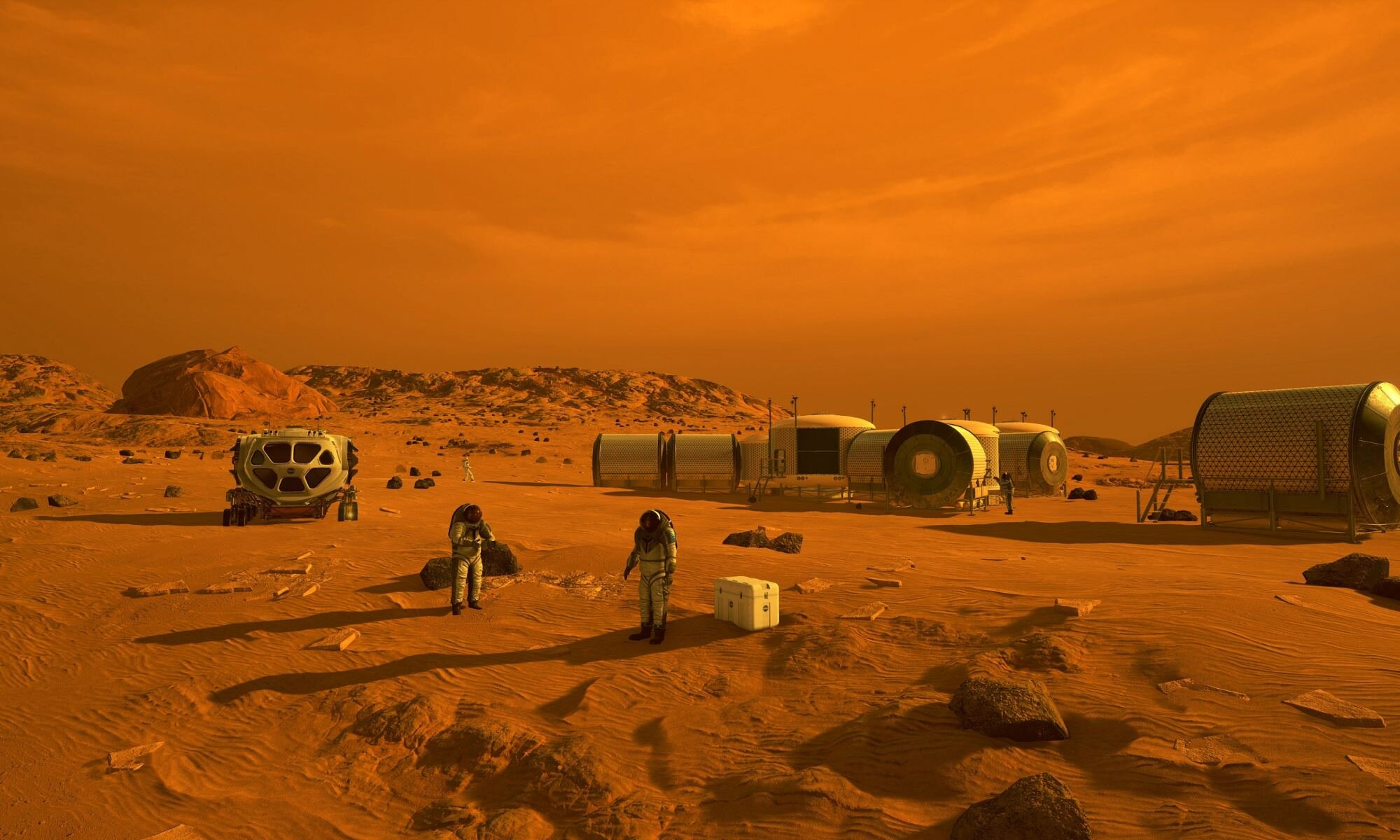The 2023 Humans to Mars Summit is happening now. Watch it live here
The conference runs from May 16 to May 18 this year.
Breaking space news, the latest updates on rocket launches, skywatching events and more!
You are now subscribed
Your newsletter sign-up was successful
Want to add more newsletters?

Delivered daily
Daily Newsletter
Breaking space news, the latest updates on rocket launches, skywatching events and more!

Once a month
Watch This Space
Sign up to our monthly entertainment newsletter to keep up with all our coverage of the latest sci-fi and space movies, tv shows, games and books.

Once a week
Night Sky This Week
Discover this week's must-see night sky events, moon phases, and stunning astrophotos. Sign up for our skywatching newsletter and explore the universe with us!

Twice a month
Strange New Words
Space.com's Sci-Fi Reader's Club. Read a sci-fi short story every month and join a virtual community of fellow science fiction fans!
This May, the international space community will gather in Washington, D.C. for the annual Humans to Mars Summit. The meeting seeks to inject a sense of urgency into the quest to send humans to the Red Planet by the mid-2030s.
This May, the space sector will gather in Washington D.C. to attend the 2023 Humans to Mars Summit (H2M 2023). The conference will begin on May 16 and will last for three days. H2M 2023 aims to encourage the space community to "inject a sense of urgency into our common goal of sending humans to Mars," according to Chris Carberry, the CEO of Explore Mars, the nonprofit organization that arranges the annual event.
Taking place at the National Academy of Sciences Building, H2M 2023 will shed light on the steps NASA, the space industry, the U.S. Congress, the presidential administration and international partners must undertake to ensure that the goal of a human setting foot on the Red Planet by the mid-2030s is met.
In addition to representatives from the above bodies, H2M 2023 will also be attended by innovators, STEM (science, technology, engineering and math) professionals, artists and musicians and other members of the entertainment community, according to the event website.
Related: NASA shows off early plans to send astronauts to Mars for 30 days
What's on the agenda at H2M 2023?
Despite its title, the summit isn't all about humanity's journey to the Red Planet; the H2M 2023 summit comes at the end of a 12-month period that has also been vitally important for space science in general. For example, NASA's Double Asteroid Redirection Test (DART) successfully struck its asteroid target in September 2022, bringing intense focus on the important topic of planetary defense.
Also, in November 2022, the successful debut launch of NASA's Space Launch System (SLS) megarocket validated the technology that will form the bedrock of the next era of crewed space missions, eventually carrying the first woman and person of color to set foot on the moon as part of the agency's Artemis program. Artemis seeks to use the moon as a stepping stone, a means of learning the skills to get humanity to the next great destination — the Red Planet.
Unsurprisingly, discussion of these missions and the themes surrounding them found their way onto a packed H2M 2023 agenda that also considers:
- Innovations that can benefit Earth now.
- Diversity and inclusivity in future space endeavors.
- Developing architecture and policy for moon and Mars exploration.
- Building toward longer sustainable space missions.
- Building excitement for Mars missions using entertainment and art.
Some of the key featured speakers will be NASA associate administrator Robert Cabana, who will host a "fireside chat" on the first morning of the event; Johnson Space Center director Vanessa Wyche, who will discuss inclusivity and diversity on Day 3 with Inspiration4 astronaut and mission pilot Sian Proctor; and Hiroshi Sasaki, vice president of the Japan Aerospace Exploration Agency (JAXA).
H2M 2023 will offer an excellent opportunity to hear about several upcoming and exciting space missions with destinations including the moon and the Red Planet. Artemis plans will feature prominently.
On the first day of the event, Masaki Fujimoto, JAXA deputy director general of the Institute of Space and Astronautical Sciences, and NASA Lunar Architecture Team Lead Shatel Bhakta will join a panel discussing NASA's Artemis 3 mission, which aims to send a crew to the moon's south polar region in late 2025. The panel will highlight the ways in which this mission, which will see two astronauts spend a week on the moon, will set the stage for a crewed mission to Mars.
Breaking space news, the latest updates on rocket launches, skywatching events and more!
H2M 2023 will also highlight the prospective implementation of nuclear propulsion to spacecraft, which could be a key breakthrough in exploration. The Demonstration Rocket for Agile Cislunar Operations (DRACO) program, which will demonstrate a nuclear thermal rocket (NTR) in orbit around Earth, will be discussed during a session by experts including DRACO Program Manager Tabitha Dodson on May 16.
H2M 2023 attendees will also hear about some of the challenges associated with crewed missions to Mars. For instance, in one presentation, graduate student Brian Bartelo will explain the risks that space debris could pose to such projects.
The risks posed by natural space debris, in the form of near-Earth asteroids, will be on the agenda during the final day of the summit, when NASA Planetary Protection Officer Nick Benardini and others discuss what a sensible planetary protection policy would look like.
Related: Potentially dangerous asteroids (images)
How can I watch H2M 2023?
Registration for all three days of H2M 2023 costs $550 plus a $33.14 booking fee, while registration for a single day costs $200 plus a $13.72 fee. These prices are reduced to $75.00 plus a $6.78 fee for students attending the three-day summit, and $30.00 with a $4.28 fee for students aiming to attend just one day.
And space enthusiasts who won't be attending H2M 2023 in person can still participate: The conference can be followed live on the ExploreMars website. And after the conference ends, talks can still be viewed on the organization's YouTube channel.
To get a flavor of the kind of talks on offer, the videos from the H2M 2022, which was held between May 17 and May 19, 2022, at George Washington University are still available to watch on the channel, as are talks from other events in the series from previous years.
Additional resources
A key factor in humanity's first crewed mission to Mars will be the Artemis program. Artemis aims to not only send humans back to the moon but also to help enable crewed Mars missions in the not-too-distant future. Read more about Artemis via NASA here.
Bibliography
THE 2023 Humans to Mars Summit
https://www.exploremars.org/summit/#speakers
Follow us on Twitter @Spacedotcom or Facebook.

Robert Lea is a science journalist in the U.K. whose articles have been published in Physics World, New Scientist, Astronomy Magazine, All About Space, Newsweek and ZME Science. He also writes about science communication for Elsevier and the European Journal of Physics. Rob holds a bachelor of science degree in physics and astronomy from the U.K.’s Open University. Follow him on Twitter @sciencef1rst.


